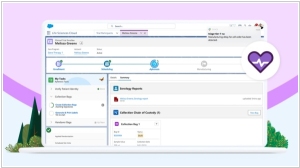NetSuite vs Xero
May 27, 2023 | Author: Michael Stromann
21
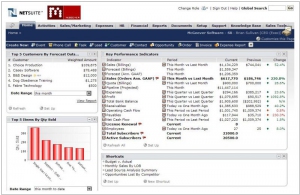
NetSuite is the leading vendor of cloud-based Software-as-a-Service integrated business management software for mid-market enterprises and divisions of large companies. NetSuite's cloud business management system including ERP / accounting, order management / inventory, CRM, professional services automation (PSA), and Ecommerce.
18
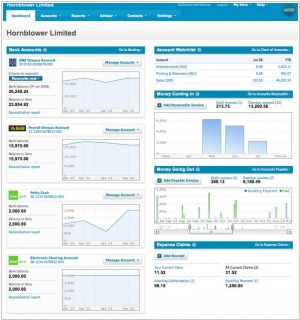
Xero is accounting software for small business. Like alternatives, Xero allows to manage invoicing, reconciliation, accounts payable, bookkeeping and more. Share access to your latest business numbers with your team & your accountant – so everyone is up to speed. Xero accounting software lets you work anywhere.
NetSuite and Xero are both cloud-based accounting software platforms that cater to different segments of businesses. NetSuite is a comprehensive enterprise resource planning (ERP) solution that encompasses accounting, financial management, inventory management, customer relationship management (CRM), and more. It is designed for medium to large-sized businesses and offers extensive customization options and advanced features to support complex financial operations and multi-entity management.
In contrast, Xero is primarily focused on small to medium-sized businesses and offers a user-friendly interface with essential accounting features. It provides tools for invoicing, expense tracking, bank reconciliation, and financial reporting. Xero emphasizes simplicity and ease of use, making it an attractive option for businesses that require a streamlined accounting solution without the complexity of a full-fledged ERP system.
See also: Top 10 Online ERP software
In contrast, Xero is primarily focused on small to medium-sized businesses and offers a user-friendly interface with essential accounting features. It provides tools for invoicing, expense tracking, bank reconciliation, and financial reporting. Xero emphasizes simplicity and ease of use, making it an attractive option for businesses that require a streamlined accounting solution without the complexity of a full-fledged ERP system.
See also: Top 10 Online ERP software
NetSuite vs Xero in our news:
2017. Xero integrated with spending tracker Curve

Accounting software provider Xero has joined forces with Curve, a fintech startup that enables users to consolidate multiple bank cards into a single card and easily monitor their spending. The objective of this collaboration is to simplify the process of expense filing by reducing unnecessary complexities. Through the integration, users now have the option to connect the Curve app to Xero, allowing expenditures made using the Curve card to be automatically synced with the accounting software, eliminating the need for manual entry of each expense.
2016. Oracle buys cloud ERP provider NetSuite for $9.3B
Oracle has announced its acquisition of NetSuite for an estimated amount of $9.3 billion. As per a statement by Oracle CEO Mark Hurd, both Oracle and NetSuite's cloud service offerings, targeting enterprise customers, will continue to operate and coexist in the marketplace indefinitely. NetSuite, an established player in the cloud enterprise resource planning (ERP) sector, holds a prominent position with its offerings for supply and demand tracking, inventory management, accounting, customer relationship management (CRM), and HR solutions. The ERP industry has witnessed considerable mergers and acquisitions along with consolidation in recent years. Oracle, known for its aggressive acquisition strategy, has been actively acquiring smaller companies throughout 2016, including Opower and Textura.
2015. Cloud accounting service Xero raises $111M
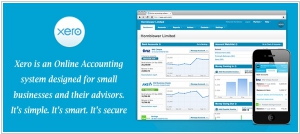
New Zealand-based online accounting software firm Xero has successfully secured a $110.8 million funding round with the aim of expanding its presence in the North American market. Including this latest investment, Xero has raised a total of over $240 million from various investors. Xero specializes in offering online accounting software tailored for small and medium-sized businesses, as well as accountants. Recognizing that many small businesses still relied on basic accounting systems or even Excel spreadsheets, Xero anticipated the future shift towards cloud-based solutions. By providing a platform that enables small businesses, accountants, and bookkeepers to perform accounting tasks online and through mobile devices, Xero has revolutionized the way they operate.
2015. Xero launched cloud payroll service in US
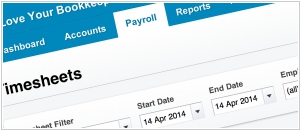
Cloud accounting startup Xero has unveiled a new product that expands its reach into the back-office realm by offering cloud-based payroll and tax software. Known as Xero Payroll, this solution specifically caters to the needs of over 5 million small businesses in the United States with less than 20 employees. Payroll management can often pose a significant financial burden for these employers, costing between $200 and $500 per month when outsourced to third-party providers. Apart from the outsourcing expenses, there is also the risk of human errors and potential penalties due to incomplete or inaccurate information. Xero Payroll aims to address these challenges by providing small and medium-sized businesses (SMBs) with a cloud-based platform similar to its accounting software. This platform enables seamless employee payment processing and facilitates the electronic filing of state and federal payroll taxes.
2013. Xero Launches New Features and Plans for a Payroll Solution
Xero, the cloud-based accounting solution designed for small businesses, has introduced a range of new features. One of the notable additions is Xero Touch, an updated version of its mobile app for Apple's iOS7. With Xero Touch, users can conveniently perform various tasks directly from their smartphones, such as checking bank transactions, creating invoices, and communicating with their accountant. Additionally, Xero has introduced Xero Files, a user-friendly drag and drop application. This feature enables users to easily upload and attach files such as invoices, expense receipts, contracts, and more, making them readily accessible and organized within the system. Furthermore, Xero Purchase Orders now allows businesses to create purchase orders in a similar manner to how they can generate invoices in Xero. The pricing for Xero's services starts at $19 per month for small businesses, which may vary depending on the volume of invoices and payments processed.
2010. NetSuite fights hairballs. But makes one with Google Apps
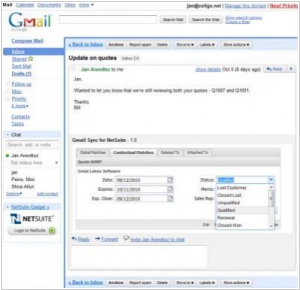
NetSuite marketing team is well known for its sense of humor. But before their humor was mainly inspired by SAP and its "stealth" launch of SaaS solution SAP Business ByDesign (that let NetSuite make its business). By the way, it's interesting that actually NetSuite drives away Oracle's customers as well as SAP's, but with respect to Oracle, the NetSuite marketers behave much more modest, because the Oracle CEO, Larry Ellison in co-owner of NetSuite. But let's go back to hairballs. What is it? According to NetSuite, the hairball - is a thing that happens when a company deploys disparate IT systems and then tries to integrate them. The conclusion is simple - use NetSuite, where everything is natively integrated. In addition to funny video NetSuite unveiled the updated system interface and seamless integration with Google Apps: ***
2009. Netsuite invented Social ERP
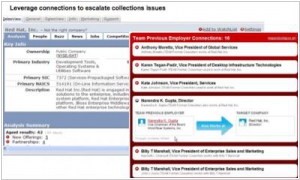
Netsuite has already missed the opportunity to use the Social CRM buzz. Salesforce and some other CRM vendors have already unveiled social features and launched the marketing promotions. But Netsuite has all chances to become the first to offer Social ERP. Today Netsuite and InsideView announced about the new partnership in order to create the Social ERP. But why do we need this social ERP software? Everything was clear with social CRM: salesperson needs to monitor customers and leads in the social networks in order to involve into the discussions and sell something. But why ERP, that is intended for resources accounting and planning, needs the similar features? Netsuite has found some answers to this question. ***
2009. Netsuite connects to SAP
Netsuite has unveiled OneWorld for SAP, a new product that provides SAP customers with the advantages of divisional Software as a Service (SaaS) while consolidating divisional data for aggregate reporting purposes. This solution empowers large enterprises to maintain their existing investments in legacy business applications while implementing a modern, web-based suite of business applications, resulting in cost reduction and increased competitiveness and productivity for their divisions. Netsuite aims to address the needs of multinational corporations by offering a flexible and functional solution that can be rapidly and cost-effectively deployed to business divisions. The company aims to provide software systems that are more adaptable, customizable, and flexible than those offered by the corporate parent company. At the core of this offering is SuiteCloud Connect for SAP, a product and service offering that bridges the gap between Netsuite data and SAP reporting. It enables the aggregation of data such as general ledgers and revenue information into SAP for consolidated reporting purposes.
2009. Netsuite created SuiteCloud Connect for Salesforce.com
NetSuite has announced a collaboration with third-party developers to introduce connectors that integrate its SuiteCloud suite with Salesforce.com CRM apps. These connectors enable users to seamlessly incorporate NetSuite applications into their collection of software as a service (SaaS) applications. SuiteCloud Connect comprises a range of integration applications that combine Salesforce.com's salesforce automation and customer relationship management software with NetSuite's online ERP suite. By establishing this connection, NetSuite aims to facilitate best-of-breed SaaS deployments. The integration with Salesforce.com is a logical step for NetSuite, as Salesforce.com boasts higher annual revenue and a larger user base. By reaching out to an audience already familiar with SaaS solutions, NetSuite expects to attract more customers to its platform.
2009. NetSuite delving into cloud computing
NetSuite, a provider of on-demand enterprise software services, is expanding its offerings to include cloud computing through its new service called SuiteCloud. In addition to hosting enterprise software on demand, NetSuite now allows customers to leverage cloud infrastructure for their IT needs. As part of its SuiteCloud Ecosystem, NetSuite is introducing a developer program called SuiteCloud Developer Network and an online marketplace for cloud computing applications called SuiteApp.com. The SuiteCloud platform is built on NetSuite's core enterprise resource management (ERP) software, along with its customer relationship management (CRM) and e-commerce solutions.



